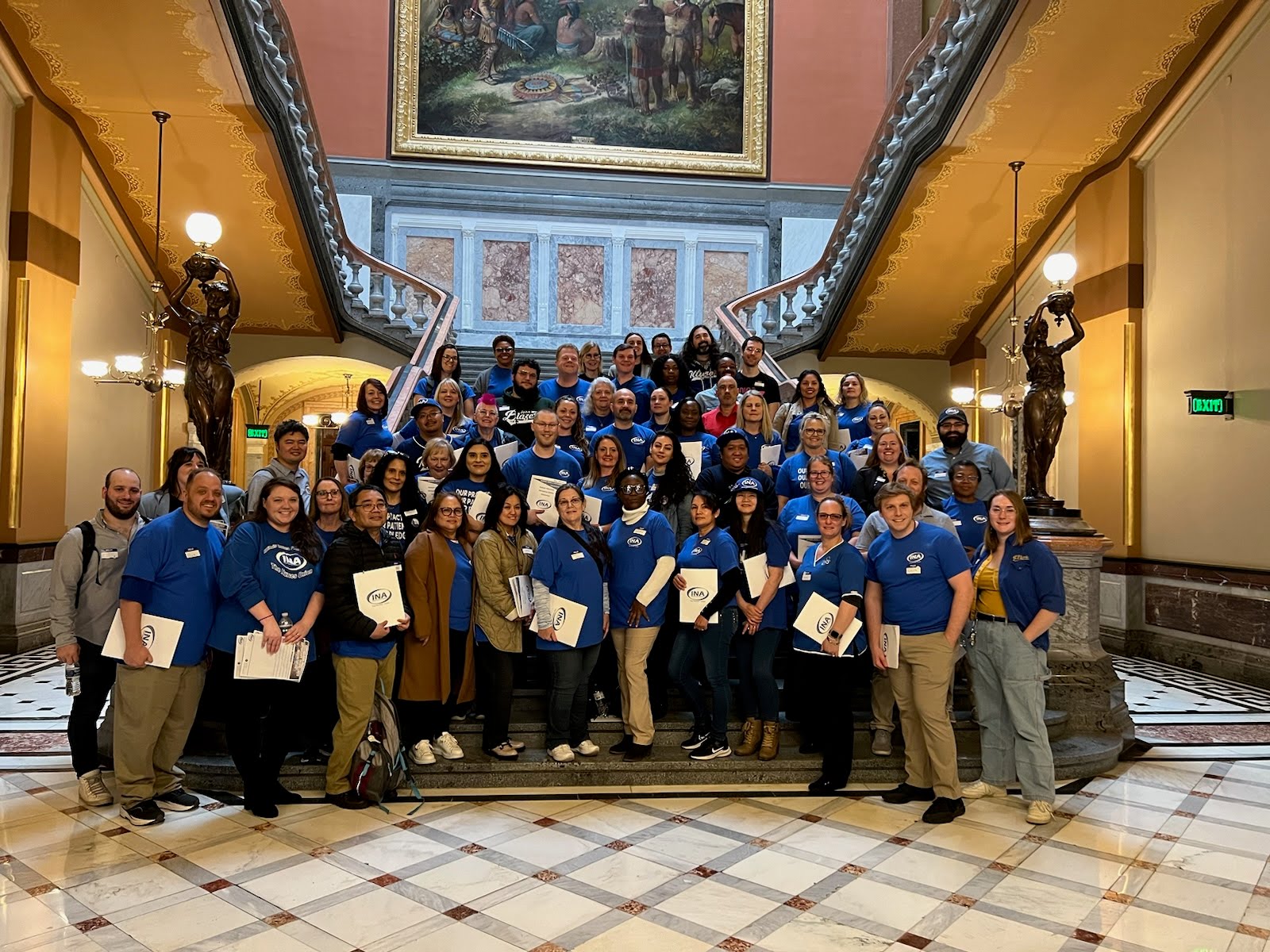
Legislative Committee
The Illinois Nurses Association is proud to be the premier voice for working nurses in the state and city legislatures across Illinois. We work to pass legislation that protects patients and nursing practice, testifying in committees, and education lawmakers on issues impacting healthcare in Illinois.
Our union’s Legislative Committee meets regularly throughout the year to determine the union’s positions on bills, write testimony, and plan yearly trips to Springfield where our union members meet directly with legislators to advocate for our shared concerns.

Unconditional support for the Safe Patient Limits Act
We believe that mandated nurse to patient ratios passed into law would keep our colleagues and patients safe.
Killing the Compact Act
We vow to fight against the passage of the Nurse Licensure Compact Act, which would allow contract nurses to cross state lines to break strikes, take union jobs, and reduce the licensure requirements for those incoming nurses.
Strengthening the Nurse Practice Act and Protecting Our Practice
We want to amend the Nurse Practice Act to prevent scope creep – for example allowing unlicensed workers like Medical Assistants to administer medicine.

Supporting Pension Reform
Eliminate the tiered state pension system so that all public sector workers can afford to retire.

Support Unions
We support legislation that our partner unions and labor friendly electeds put forward – laws that would further protect our rights at work and limit retaliation.

In order for us to win these demands, it’s important that every one of us gets involved. Moreover, we hope you’ll join us in future meetings to help us decide what positions our union should take on bills and ordinances throughout the state, any INA member is welcome to join. Please contact us at politicalaction@illinoisnurses.com to get involved.
Past Wins
Human Services Workforce Advancement Ordinance
In April 2023, the Chicago City Council passed the INA-sponsored Human Service Workforce Advancement (HSWA) ordinance by a veto-proof majority of 42-2. The ordinance requires human service agencies that receive city funding and have more than 20 employees to agree not to retaliate against employees who are seeking to form a union. In exchange, workers would agree not to disrupt operations by picketing or taking part in other job actions.
Illinois Healthcare Workplace Violence Protection Act
Led the charge to pass the Healthcare Workplace Violence Prevention Act to combat the violence that regularly occurs against health care workers in nearly all care settings. Amidst state legislative gridlock, the INA scored a monumental victory in helping create and pass the Act which fundamentally affects the way in which hospitals and other health care providers design workplace violence efforts, train staff and care for committed persons.
Blocked Nurse Licensure Compact
The INA, in partnership with the AFL – CIO, have successfully blocked the passage of the Nurse Licensure Compact, which has been continuously pushed by Hospitals and non-union nursing organizations. The legislation would make it easier for out-of-state, non-unionized nurses from states with less stringent licensing standards and lax education requirements to enter the Illinois’ workforce.
Negotiated Nurse Practice Act Rewrite
The Illinois Nurses Association helped lead the discussion on the Nurse Practice Act Rewrite, the Act which governs the licensing authority and standards for all nurses in Illinois. The INA made major gains on delegating authority for nurses as well as helped to streamline the licensing process for all nurses in the state.
Cultural Competency Requirement Bill
Supported the addition of 1 CEU related to cultural competency training for all licensed medical professionals in Illinois, to improve communication and understanding between patients and their providers when receiving healthcare.
